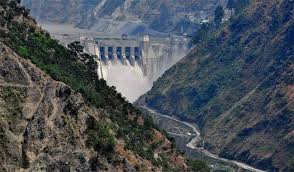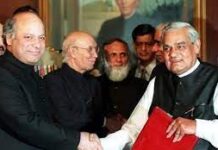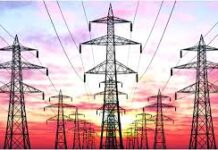By Muhammad Luqman
India has managed to coplete 330 MW Kishenganga hydropower project in the Occupied Kashmir with the faulty design in negation of Indus Waters Treaty of 1960, according to media reports.
Though World Bank is in process of mediation between the two nuclear states on how to advance and develop consensus in the light of Indus Waters Treaty 1960 on the mechanism for resolution of ‘faulty designs’ of 300 MW Kishenganga and 850 MW Ratle hydro power projects. There is still a statement even after the lapse of 11 months since the Bank announced the pause on December 12, 2016, but India has managed to complete its controversial project against what Pakistan has moved World Bank, according to Ministry of Water Resources officials.
Pakistan’s water interests. We have asked the World Bank to constitute the Court of Arbitration as soon as possible,” says Mirza Asif Baig, Pakistan Commissioner of Indus Waters. “However, the response of the World Bank is still awaited.”
As far as construction of 850 MW Ratle Hydropower project is concerned, there are reports that the contractor of the project has run away and Indian authorities are in the process of hiring new contractor, English newspaper , The News reported.
Pakistan and India had talks in Washington in mid September that ended without any result.
World Bank wanted both the countries to develop consensus either on mechanism of Neutral Expert or of Court of Arbitration mentioned in the Treaty for the resolution of the issues pertaining to the said projects. And in case of failure, both the countries need to develop agreement on the middle way to resolve the issues.
Both the countries held many talks at secretary level in Washington in the presence of the top official of the World Bank, but the meaningful meeting could not take place at the eleventh hour because of the India’s evasive attitude and since then the World Bank is in the process of persuading India to come on the table for talks on how to proceed on the resolution of the disputed projects.
Pakistan had raised objections on the technical designs of both the projects being built by India; one on Chenab and other one on Jehlum rivers arguing the designs are not in line with the provisions of the Indus Water Treaty and both projects with the existing designs are detrimental to water interest of Pakistan.
India has also begun electricity projects including the 1,000 MW Pakal Dul, 120 MW Miyar and 48 MW Lower Kalnai projects on River Chenab’s tributaries. Pakistan planned to raise its reservations over these projects too. The last secretary-level talks between the two countries were held in the last week of July in Washington.
Pakistan and India share the waters of Indus River Basin which has been a major source of contention between the two states since independence.















